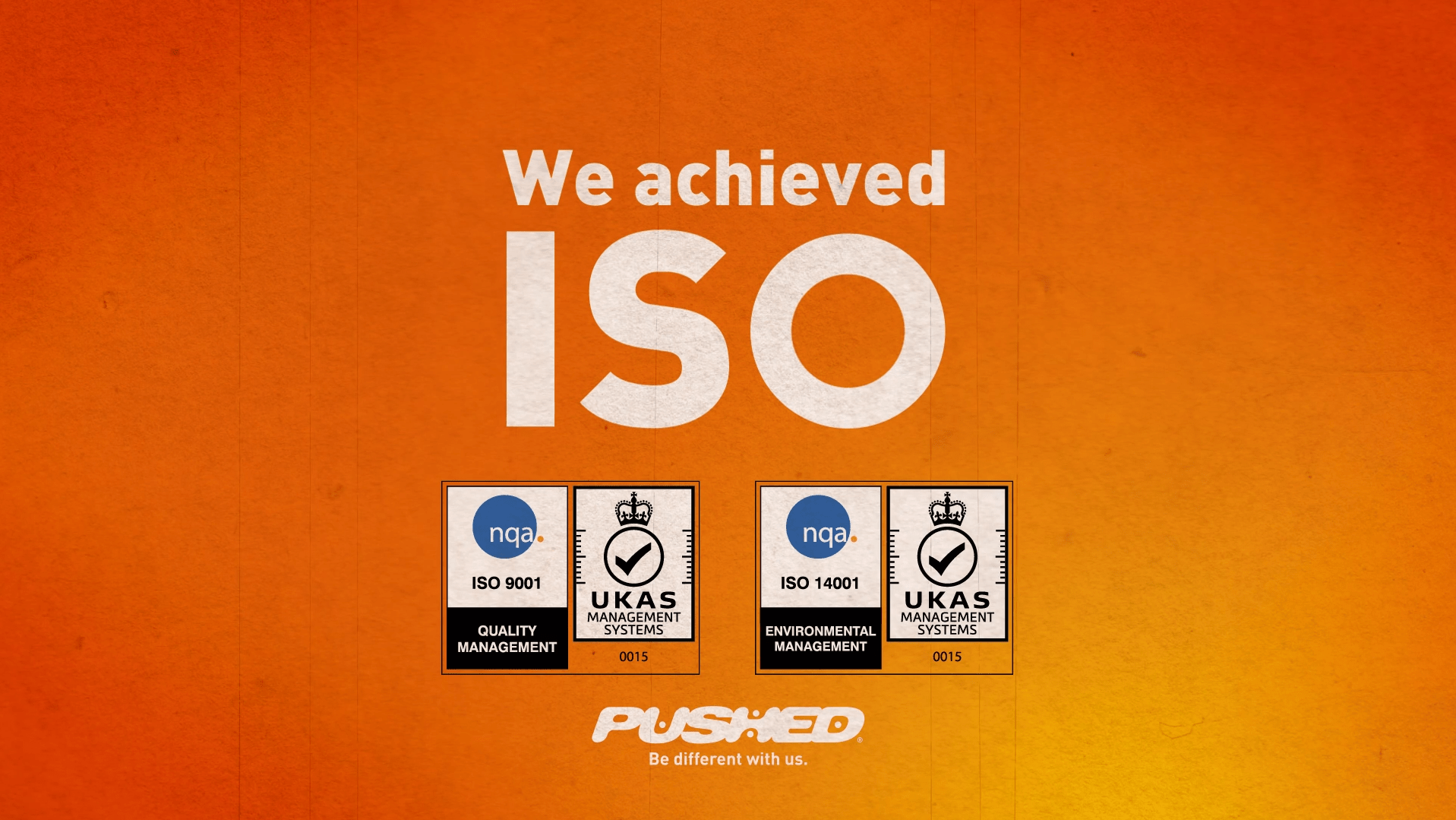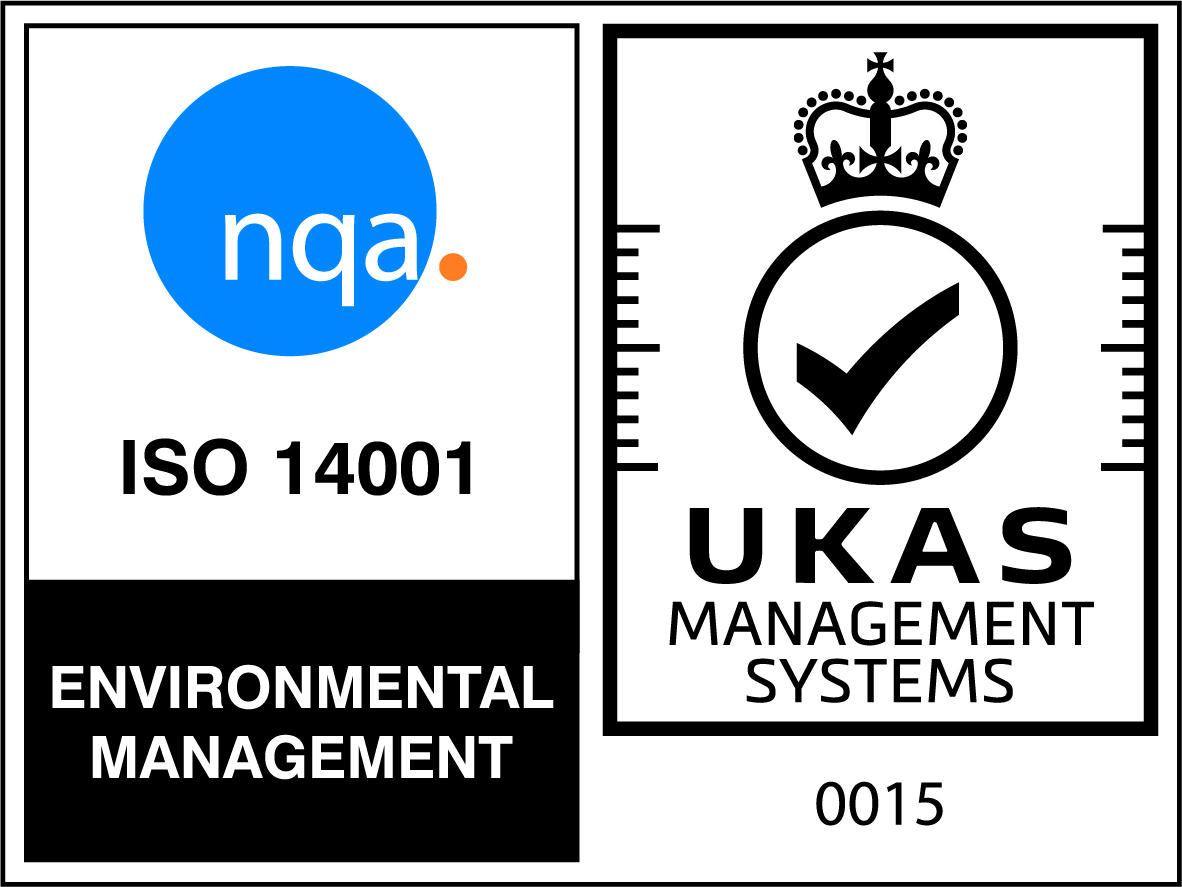In the modern business landscape, organisations strive not only for profitability but also for excellence in customer service and environmental responsibility. Achieving these goals requires a structured approach, often validated through internationally recognised standards. Among these, ISO certifications stand out as benchmarks of quality and sustainability. Pushed has worked hard to achieve ISO certification, particularly ISO 9001 and ISO 14001 standards, as a sign of our commitment to our clients and our dedication to contributing to a more sustainable future. The process of achieving these certifications is involved and symbolises a company taking a step above the competition.
What is an ISO certification?
ISO stands for International Organisation for Standardisation and is an independent, non-governmental international organisation that develops and publishes voluntary international standards. These standards cover various aspects of technology, industry, and business, aiming to facilitate international trade and ensure quality, safety, and efficiency across borders. Certification is a formal process where an independent certification body assesses an organisation’s adherence to specific ISO standards. It involves thorough evaluation of the organisation’s management systems, processes, and practices to ensure they meet the requirements outlined in the chosen ISO standard.
ISO 9001: Quality Management System
ISO 9001 is perhaps the most widely recognised ISO standard globally. It pertains to Quality Management Systems (QMS) and provides a framework for organisations to streamline their processes, enhance customer satisfaction, and continually improve their performance. Achieving ISO 9001 certification signifies an organisation’s commitment to delivering products or services that meet customer expectations consistently. This journey typically involves several key steps:
- Gap Analysis: Assessing their existing processes against ISO 9001 requirements to identify areas for improvement
- Documentation: Developing documented procedures and policies that align with ISO 9001 standards
- Implementation: Rolling out the revised processes and procedures across the organisation, ensuring buy-in from all stakeholders
- Internal Audit: Conducting internal audits to verify compliance and identify further opportunities for improvement
- Certification Audit: Engaging in an accredited certification body to assess the organisation’s QMS against ISO 9001 requirements
- Continuous Improvement: Embracing a culture of continuous improvement to maintain and enhance the effectiveness of the QMS
ISO 14001: Environmental Management System (EMS):
ISO 14001 focuses on Environmental Management Systems (EMS) and provides a framework for organisations to minimise their environmental impact, comply with regulations, and demonstrate commitment to sustainability. Obtaining ISO 14001 certification indicates that an organisation has implemented effective environmental management practices. The process is similar to that of ISO 9001 with a few key differences:
- Environmental Review: Assessing the organisation’s environmental impact, including energy consumption, waste generation, and pollution
- Policy Development: Establishing environmental objectives, targets, and management programs aligned with ISO 14001 requirements
- Implementation: Integrating environmental management practices into daily operations and ensuring compliance with relevant laws and regulations
- Monitoring and Measurement: Regularly monitoring environmental performance, conducting audits, and tracking progress towards environmental goals
- Certification Audit: Engaging a certification body to evaluate the organisation’s EMS against ISO 14001 criteria
- Continuous Improvement: Continually seeking opportunities to reduce environmental impact, enhance sustainability initiates, and engage stakeholders in environmental stewardship.
Pushed’s journey towards certification
Embarking on the journey towards ISO 9001 and ISO 14001 certification signifies a commitment to excellence in quality management and environmental stewardship. Pushed is dedicated to providing the highest quality of services to our customers, and our pursuit of these certifications highlight our dedication to more than just our bottom line. These changes include:
- Updating our environmental knowledge and collaborating with external agencies to implement sustainable choices
- Shifting to digital documentation where feasible to reduce paper consumption
- Partnering with suppliers who prioritise sustainable practices and mitigate environmental harm
By undergoing a rigorous internal audit, we’ve refined our existing systems, enhancing efficiency and workflow processes, and are pleased to say that our carbon footprint is less than 10 tonnes per year.
Certification also provides benefits such as enhanced credibility and reputation, improved efficiency and cost savings, a competitive advantage, and regulatory compliance. Pushed is dedicated to providing the highest quality of services to our customers, and our pursuit of these certifications highlights our dedication to more than just our bottom line. By following structured processes, implementing best practices, and fostering a culture of continuous improvement, Pushed is taking steps towards contributing to a more sustainable future.




